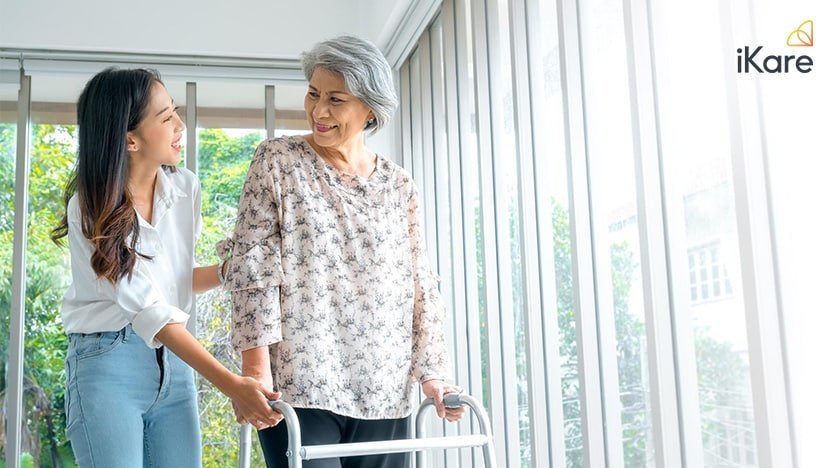
Parkinson’s is a neurological condition that affects movement, often presenting challenges in daily life. Supporting a loved one grappling with Parkinson’s Disease demands patience, empathy, and a comprehensive approach. However, as a family member of a patient with Parkinson’s, there’s a learning curve in navigating the most effective ways to assist a loved one in coping with such a diagnosis. iKare, a leading provider of caregiver services in Singapore understands the challenges, and we’ve put together these valuable Parkinson’s care tips to enhance your role as a supportive caregiver.
Educate yourself on the condition

Understanding Parkinson’s Disease is a key aspect of effective caregiving. It’s a complicated condition impacting the central nervous system, causing symptoms like tremors, stiffness, and balance problems. Learning about how the disease progresses, available treatments, and potential difficulties helps anticipate and meet your loved one’s changing needs. Trustworthy sources like home care services provide essential information, caregiver training, and a supportive community. This knowledge empowers caregivers to offer informed assistance, understand their loved one’s experiences, and adjust care methods accordingly.
Assist with activities of daily living

Parkinson’s Disease gradually affects an individual’s independence in daily tasks, Activity of Daily Living (ADL), making caregiving essential for tasks such as grooming, meal preparation, medication management, and mobility. It’s crucial to closely monitor shifts in symptoms, capabilities, and emotional states, especially following changes in treatment. This is where professional caregiver services offer practical aid in such situations. While individuals with Parkinson’s may maintain their routine activities, subtle changes may go unnoticed, such as the need to refrain from driving or the increased risk of falls. Seeking support not only alleviates the caregiver’s burden but also guarantees specialised care for the individual’s unique needs.
Encourage exercise
Physical activity plays a pivotal role in managing Parkinson’s symptoms and is especially beneficial in memory care. Regular exercise can improve mobility, balance, and overall well-being. Encouraging your loved one to engage in exercises specifically tailored for Parkinson’s like stretching, strength training, yoga, or even dance, can make a significant difference.
Collaborating with a skilled physical therapist familiar with the condition also ensures structured routines and as well as social interaction. These activities go beyond symptom management; they instil a sense of accomplishment and positivity, nurturing mental and emotional resilience. By integrating these activities into daily life, individuals with Parkinson’s can experience improved functionality and a higher quality of life, showcasing the power of exercise as a vital tool in the management of this condition.
Need services for home nurse Singapore services, then contact us today.
Caring for someone with Parkinson’s Disease demands an approach that includes various facets of support and understanding. It goes beyond merely tending to physical needs, but about fostering an environment of empathy, patience, and adaptability. With the right mindset and resources, both caregiver and the individual with Parkinson’s can confront the condition’s challenges with resilience and dignity.
Searching for home caregivers skilled in dementia care for your loved ones with Parkinson’s Disease? iKare has a dedicated team of professionals ready to provide you with unparalleled support. Contact us now to embark on this journey with a sense of renewed confidence today.

